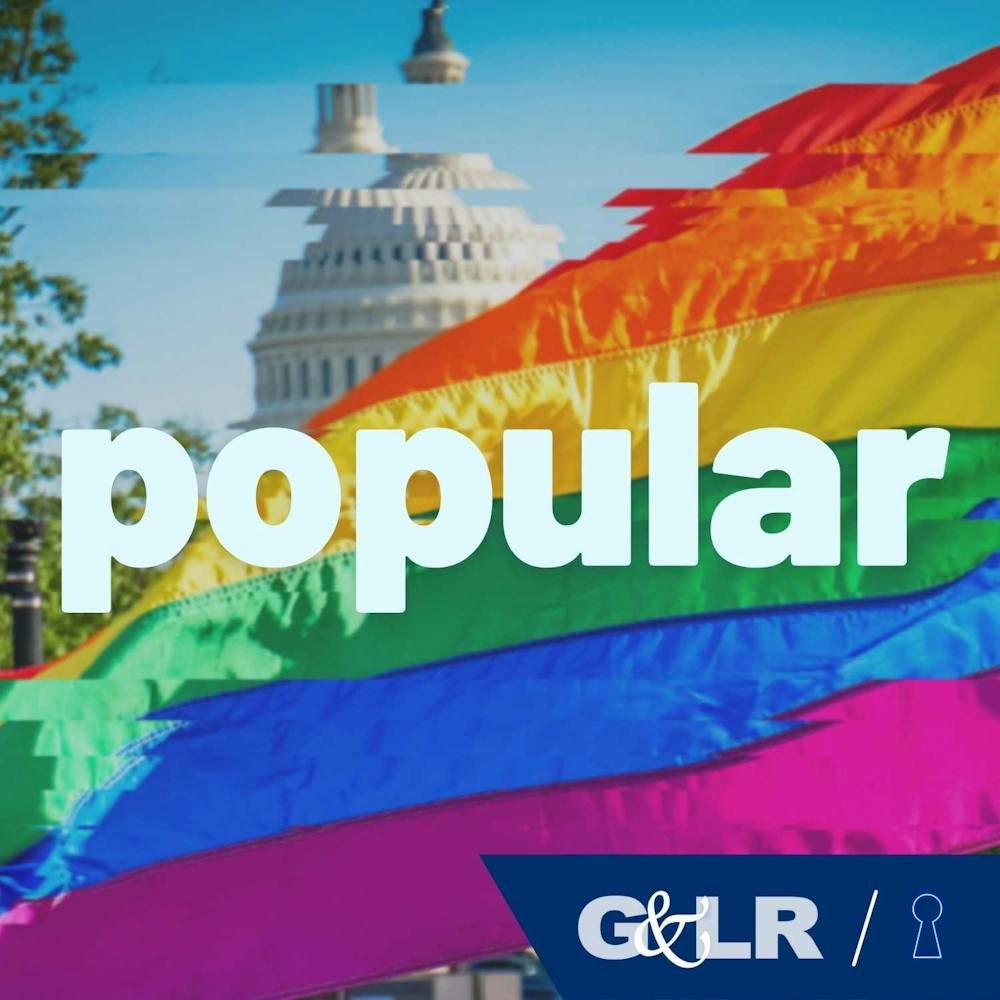Popularity is often a concept associated with middle school, but to many people’s surprise, popularity manifests itself into social hierarchies and stratification. In William Keiser's new podcast, he demonstrates this specifically in D.C.’s LGBTQ+ community.
William Keiser, a screenwriter, dancer and resident of D.C., created and hosted the podcast ‘popular’ in collaboration with The Gay & Lesbian Review and the D.C. production company Haus of Bambi. By documenting his own experiences and perspectives in his community, Keiser examines popularity in the LGBTQ+ community to show how it can often still foster racism, sexism and transphobia.
In many gay social scenes across D.C, Keiser said the beauty standard for men is hyper-masculine, muscular, and emotionally stagnant. These strict guidelines create strong and often unhealthy relationships between one’s physical appearance and “worth” and their queerness. Since many of these “popular” figures in the LGBTQ+ community refrain from opening up about their identity, Keiser sought to uncover the sources of these social hierarchies by interviewing people he met in gay bars, neighbors, and friends.
“Almost everyone in the podcast is someone I know personally or have a relationship with. It’s kind of an aggregate experience of all the people I met while living in D.C.,” Keiser said in an interview with The Eagle.
Keiser also emphasized the importance of investigative podcasts that are created by people who actively exist in the communities they talk about. Keiser wanted to critique the genre of investigative podcasts by reporting directly on his friends and himself so he wasn’t removed from the topic and could give an honest perspective that can better educate listeners.
“A lot of these investigative podcasts were hosted by straight, white women with a lot of privilege, reporting on crime,” Keiser said. “And I look up to these journalists, but how can you understand the subject? You are so far removed from what’s going on.”
He said he felt the specific medium of a podcast was the most effective way to connect with his audience on the issue of social stratification in the LGBTQ+ community.
“This could’ve been done in a written format, but podcasts have such a direct line to your soul as a listener,” Keiser said. “There’s already so much written content out there, and something about the spoken word is alive.”
Since the content in the podcast and creating this work is heavily intertwined with Keiser’s personal life and social circles, he has constantly been uncovering new realizations about his relationship with the D.C. LGBTQ+ community.
In the second episode, Keiser describes how one main event for social gatherings in the D.C. LGBTQ+ community is kickball, which fosters a space to be unapologetically queer in an athletic setting. However, while Keiser enjoyed his time on the field, in a conversation with his female teammates he learned they felt differently. They opened up about how they felt disregarded by the gay men on their team, a reflection of the overall presence of sexism in the LGBTQ+ community.
“The truth is I haven’t had these deep conversations before with friends I’ve interviewed. We never really had the chance to talk about our past, our bad experiences or our beliefs and philosophies,” Keiser said. “I asked people incredibly personal questions, but it made me realize how much variety there is in the queer community. It’s so easy to compare yourself to other people without having any of that kind of data, especially about the people in your own circle.”
Every single interview Keiser has conducted has been over an hour long, allowing people’s defenses to go down overtime, and for both Keiser and his friends to be vulnerable and have open discussions about queer identity.
“The stuff that we don’t talk about together is actually the key to making our experiences better.”
Keiser explained how the process of sitting down with dozens of people for hours on end helped broaden his perspective about how many different people exist in the LGBTQ+ space. Under the guise of investigative journalism, he achieved his goal of making a platform for people who are typically discounted and brought his community closer together.
“My friend John reached out to me and said it made him cry at the end which meant a lot to me,” Keiser said. “One of the things in Andrew Holleran’s book that he wrote in Dancer From the Dance is that ‘Gay men secrete all the liquids in front of each other except for tears,’ so if I can get to that level with people, especially gay men, it’s not something that can be taken for granted.”
He explained that oftentimes gay men are forced to adjust mannerisms, physical traits and aspects of personality as a means of survival in a heteronormative society.
“I think we have a problem of being vulnerable with each other because for us vulnerability equals death,” Keiser said. “And I’m speaking for myself too. I went through this journey of how not to hate yourself.”
Through this podcast, Keiser explained how many of his friends and acquaintances featured were able to not only share their story, but listen to each other’s stories and have greater appreciation for others in the community. And while the podcast will remain a three-part series, Keiser hopes to continue strengthening his LGBTQ+ community through storytelling and empathy.
The ‘popular’ podcast is available to listen on Apple Podcasts and Spotify.





